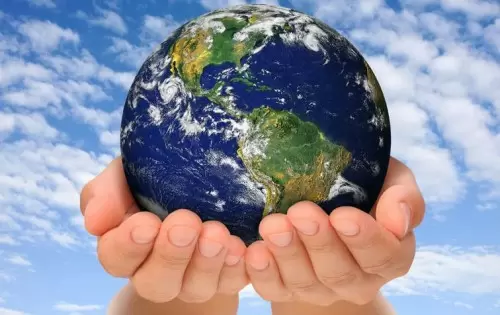In between the Ozarks and our namesake river surging through the center of the state, we've got plenty of environmental variety to enjoy here in Missouri. We're a prime destination for tourists from all over the country, with more than 16 million visiting in 2005 to check out our lakes, rivers, and stellar corn mazes.
The fun doesn't stop at ground level, either… before we were the Show Me State, Missouri was widely known as the Cave State. With more than 6,000 caves riddling the karst region in the south part of the state, we're a major destination for spelunkers from around the world as well.
It's not just recreation; timber, mineral, and agricultural resources abound and power Missouri industry.
We've been pretty lucky not to face some of the major environmental challenges other states have had, but coping with extreme weather and the effects of climate-change driven drought and flooding are going to demand first-rate environmental science talent. And we're growing that talent right here at home.
What Can I Do with an Environmental Science Degree in Missouri
In the public sector, Missouri's Department of Natural Resources is always hiring environmental scientists and technicians to help maintain and administer state resources and enforce regulations.
But we have plenty of private sector opportunities as well. Bayer's Crop Science division, formerly Monsanto, is based here in Creve Coeur, and no matter what name the agribusiness giant operates under, it needs a steady stream of top talent in biotechnology and soil science.
We also have major international environmental engineering consultancies like Golder, with an office in Ballwin, who need environmental expertise in a range of areas.
Unsurprisingly, food scientists do fairly well here, with mean annual wages over $82,000 according to the Bureau of Labor Statistics. Soil and plant scientists aren't as high up the food chain, making only $52,270 on average. Conservation scientists are about in the middle, making $70,350 annually.
2020 US Bureau of Labor Statistics salary figures and job growth projections for Food Scientists and Technologists, Soil and Plant Scientists, and Conservation Scientists reflect state data not school-specific information. Conditions in your area may vary. Data accessed September 2021.
Master's in Environmental Science in Missouri
There are at least five different universities in Missouri that offer master's degrees in the environmental sciences, which gives you all the options you need to find a program that has the right fit for your goals and aspirations in the field.
One of the most flexible you'll find is Missouri State University. At the William H. Darr College of Agriculture, you'll find master's degrees in Natural and Applied Science and in Plant Science that have both dual-degree and accelerated options. Any undergraduate at the university studying agriculture, biology, or chemistry has the option of completing their master's in one of these programs with only a single additional year of schooling, getting you out into the real world and on to real solutions that much faster.
Or for a top-20 rated program in environmental science, you can always look to Washington University in St. Louis. The private research university has a highly integrated graduate program in plant and microbial biosciences that takes advantage of the expert faculty and terrific lab facilities that will boost your expertise in esoteric subjects such as prokaryotes and eukaryotic microbes, if that's what you're into.
Bachelor's in Environmental Science in Missouri
Before you can take advantage of the superb master's programs available in the state, though, you're going to need to get an appropriate undergraduate degree. Of course, most schools that have a solid master's program also have a good bachelor's option, and, as at MSU, the integration between them can be a feature.
But there are other options for you if you want a more diverse undergraduate experience or plan to take your bachelor's and get right to work in the field. At Southeast Missouri State University, the environmental science major includes focus options in biology, chemistry, business, policy and communication, geoprocessing and soils, or environmental health.
And in Fulton, you can check out Westminster College's environmental science or environmental studies majors, each of which combines academic rigor with real world experiences in the form of field trips and internships to help deliver first-hand experience along with professional contacts that can help you get your foot in the door after graduation. And although Missouri is a great place to get outdoors, Westminster doesn't stop there… some experiences can take you to national parks around the U.S. or even Costa Rica.
Online Environmental Science Degree Options from Schools in Missouri
Online degree programs are the hot new thing in college education, but it can be a challenge to find good options in the environmental sciences. In Missouri, fortunately, we don't have that problem, and that's entirely because of Rolla's Missouri University of Science and Technology.
The school's Distance and Continuing Education department offers a master of science in environmental engineering degree that works just as well for recent graduates as it does for experienced industry professionals seeking to bolster their credentials with an advanced degree. With the convenience of attending classes when and where it's easiest for you, you can get an education in natural and engineered environmental systems that will leave you fully equipped to deal with the modern challenges of development and climate change across the environmental spectrum.







